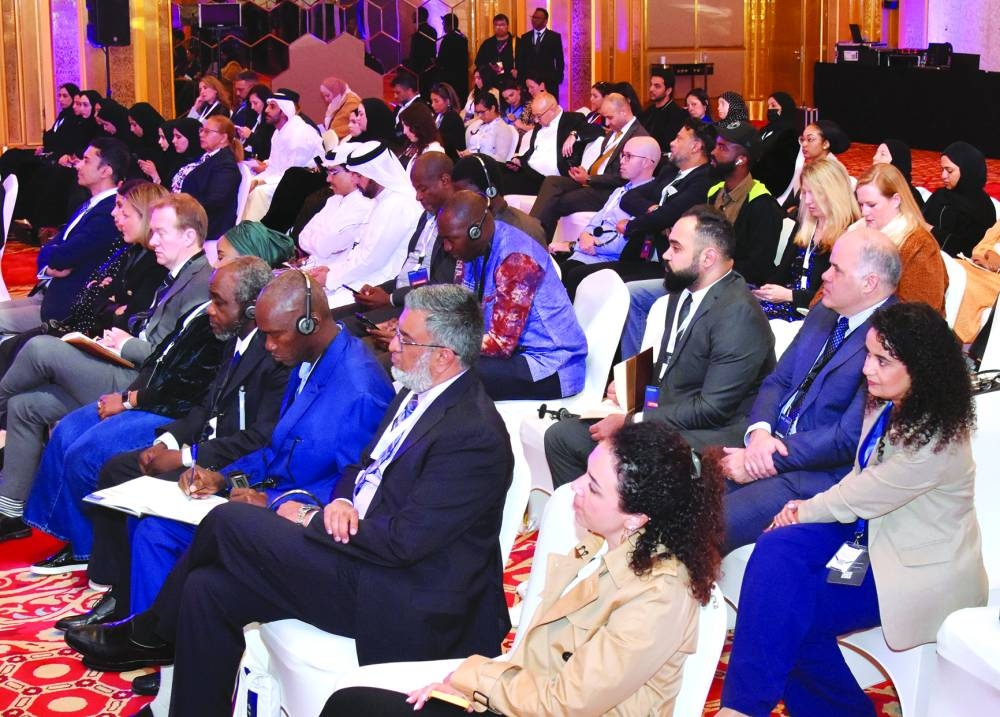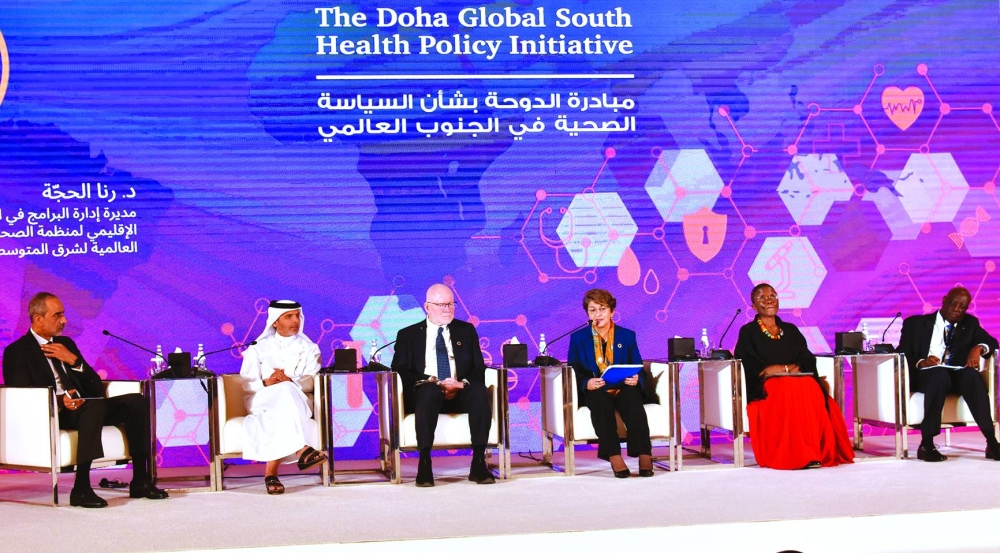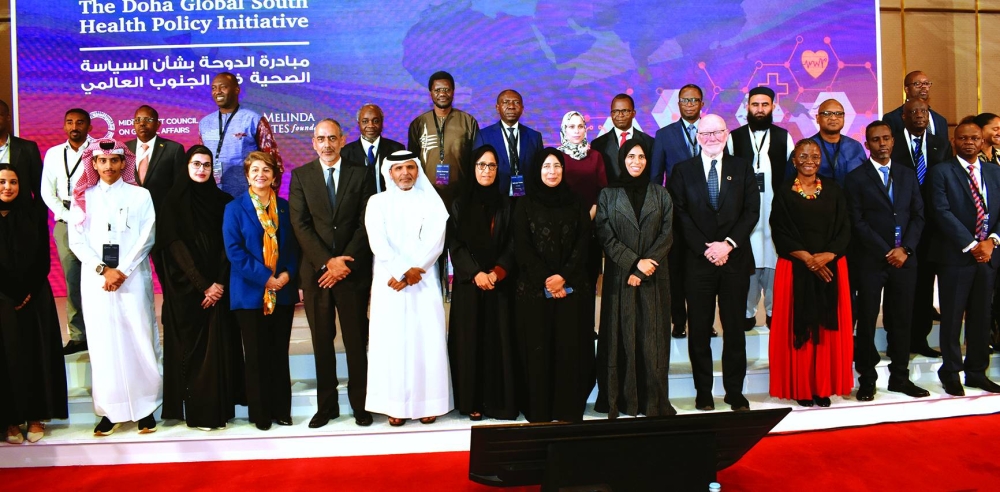In an effort to provide universal health coverage and ensure primary healthcare to the low and middle income countries in the Global South, the Middle East Council on Global Affairs and the Bill & Melinda Gates Foundation, with the support of Qatar’s Ministry of Foreign Affairs, have launched the Doha Global South Health Policy Initiative.
The event held at the Sheraton Grand Doha on Monday, was attended by HE the Minister of Public Health Dr Hanan Mohamed al-Kuwari, HE the Minister of State for International Co-operation at the Ministry of Foreign Affairs Lolwah Rashid AlKhater, former minister HE Hessa al-Jaber, and Dr Chris Elias, president of the Global Development Division at the Bill & Melinda Gates Foundation, among others.
The two-day event is also attended by representatives from nine low-and-middle-income countries in Africa and Asia, alongside international experts and key stakeholders from Qatar, including the Ministry of Public Health, the Ministry of Foreign Affairs, the Qatar Fund for Development, Qatar University, and Hamad Bin Khalifa University.
The initiative aims to develop a collaborative platform for countries in the Global South to address their healthcare challenges, find actionable solutions to enhance their healthcare systems, support the achievement of Sustainable Development Goals, and address unmet healthcare needs.
“Over the last decade, Qatar has developed enhanced primary healthcare services and infrastructures, focusing on prevention and early intervention to reduce the burden of disease and improve health outcomes,” HE Dr al-Kuwari noted in her remarks. “Through this initiative, in line with the internationally agreed global health strategies, we can collectively contribute to strengthening primary healthcare in the Global South, investing in its infrastructure, its workforce and its resources.”
“Together we can build healthier, more resilient communities, and achieve the vision of health for all,” she added.
“Focusing on public health issues in the Global South aligns very well with the development priorities of the country and the strategic vision of the Qatar Fund for Development,” HE al-Khater said.
She affirmed Qatar’s commitment to supporting access to primary healthcare in the Global South, while ensuring that this support improves healthcare and development outcomes.
A high-level panel discussion on *Enhancing Primary Healthcare Access in the Global South: Challenges and Solutions* was held on Monday.
Assistant Minister of Public Health Dr Salih al-Marri, director of the World Health Organisation (WHO)’s Programme Management at the Eastern Mediterranean Regional Office Dr Rana Hajjeh, member of the WHO’s Africa Regional Immunisation Technical Advisory Committee Deo Nshimirimana, African Leaders Malaria Alliance executive secretary Joy Phumaphi, and Dr Elias of the Bill & Melinda Gates Foundation participated in the panel discussion.
Middle East Council on Global Affairs director Dr Tarik Yousef moderated the discussion which explored how Qatar, drawing from its own experience and role at the WHO and other international organisations, can support countries facing challenges in healthcare accessibility.
At the discussion, Dr Elias noted that “over the last 20 years, the world has cut child mortality in half”.
“Unfortunately, in the last decade, we’ve seen that progress slow down,” he continued. “To get back on track with reaching the Sustainable Development Goals, we need a more comprehensive approach that addresses the needs of community health workers, and I’m optimistic that through new partnerships like the one launched today in Doha, offering leaders from the Global South a platform to voice their priorities and challenges, we can once again accelerate progress.”
Concluding the panel, Dr Yousef outlined the plan of action for the following two days, and added: “Our role is to facilitate these discussions and see how we can collectively help through this platform, which emphasises knowledge sharing, to identify and establish an agenda for the Global South by the Global South in shaping future health outcomes.”

A section of the audience at the event. PICTURES: Thajudheen

The panel discussion in session at the event.

Dignitaries pose for a group photo.

